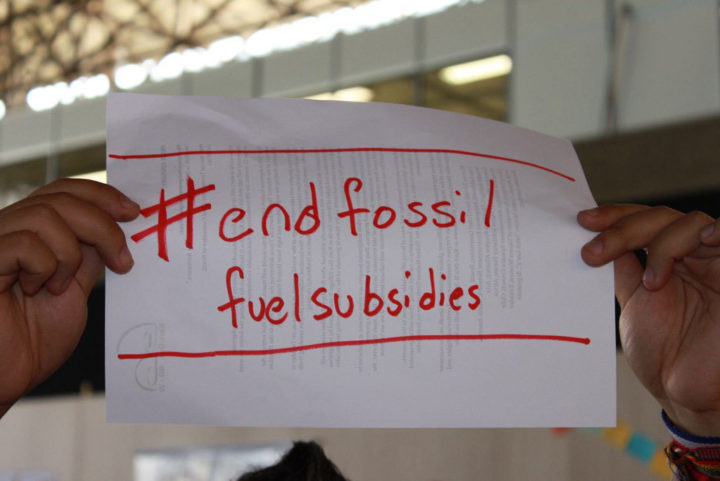The Economist: Welcome to the Green Blob
Sober assessment of energy options sprouts a surprising amount of green foliage
By Richard Black
Share
Last updated:
By Richard Black, ECIU Director
The Economistcan be a confusing publication.
Calls itself a newspaper, but comes out only weekly and consists largely of analyses compiled from facts already in the public domain? What’s that about? And what's with those blank bylines?
But sometimes, it puts out a set of articles that reminds you why it matters – why it is that even in the internet-wired, Project Syndicate age, sober readers on both sides of the Atlantic and both sides of the left-right divide still turn to it for a definitive, thoroughly researched, state-of-the-art digest of a given field.
Last week’s look at energy is one such example. If you haven’t read it, make it your first job this week; if you don’t subscribe, beg or borrow a copy from a friend.
Summarising the ingredients of such a comprehensive offering is a tall order, but it goes something like this:

- The low oil price gives governments an opportunity to do something they badly need to do, namely to reform energy policies and subsidies; and they should seize the day
- The first to go should be the $550bn that governments spend per year on subsidising fossil fuels
- Energy economics are changing fast, with prices of renewables, especially solar, tumbling and already cost-competitive in some applications
- Compatible technologies such as electricity storage are progressing quickly
- Governments should make more use of energy efficiency (the 'invisible fuel'), smart management of demand (‘negawatts’) and electricity interconnectors, which offer cheap, secure, low-carbon options
- For many countries, local generation is going to make the traditional power utility model redundant, and is the best option for poor tropical nations
- Utilities and fossil-fuel companies that fail to adjust are turkeys.
Now, here’s the interesting bit. Virtually every conclusion that The Economist reaches has previously been made copiously inside what Owen Paterson MP (or was it Matt Ridley?) christened the ‘Green Blob’.
Reforming fossil fuel subsidies is a refrain of countless reports from NGOs such as Oil Change International, (as well, it must be said, by governments in such fora as the Rio+20 summit). Even the World Bank recently argued that oil subsidies should be cut.
The potential of energy efficiency, interconnectors and demand response to solve the energy ‘trilemma’ of security, low emissions and low price, and their compatibility with solar and wind power, is marked by Green Alliance, Sustainability First, Greenpeace, WWF… a veritable who's-who of the Green Blob.
Ungreen shoots
There are a few exceptions to unabashed greenery in The Economist's digest.
It argues for abolition of all subsidies, including for renewables – and its failure to acknowledge the part that consistent support for solar has played in the currently plummeting price is one of the edition’s few logical flaws.
Its discussion of Germany’s nuclear phaseout ignores (with wearying familiarity) the fact that this is what Germans want, as though strictly economic concerns must always trump democracy.
But overall, this is a remarkable piece of coverage. To see The Economist reaching broadly the same conclusions as green groups, green-tinged academics and progressive think-tanks is an extraordinary validation of their work on energy and climate over decades.
Raising the stakes
And, as the best journalism always should, it raises the stakes for everyone else.

The profound changes in the energy sector, such as the advancing tide of renewables, are documented most diligently by specialist publications such as BusinessGreen.
Investor-focused media such as the Financial Times have caught up fast; but where, for example, is the BBC on these issues?
When the Today Programme on Friday morning discussed the poor short-term outlook for the North Sea oil and gas industry, where were the arguments that a) long-term energy trends are moving away from fossil fuels, and b) solving climate change requires leaving most oil in the ground?
Where is the big documentary series on the future of the energy industry, the different models being explored in various parts of the world, and the implications that these massive changes carry for British businesses and British investments – including, for example, British pension funds?
Is the odd pound or two on or off energy bills – which the BBC always does cover – really the big story here?
Sandbagged
The Economist also shines a new light on current UK policies.
I’m sure the Coalition can live with criticism from groups such as Sandbag of its recent billion-pound-a-year subsidy to fossil-fuel-burning power stations.
I’m sure it wouldn’t lose too much sleep if Greenpeace suggested it should not increase subsidies for North Sea gas companies, but instead use the plummeting wholesale price as an opportunity to increase carbon taxation without hitting consumers’ bills.
But hang on – this is The Economist making these arguments!
So these are the questions we really need answering. Has The Economist joined the Green Blob, at least on the energy and climate issue?
Is it the latest entity to be captured by the Blob's cynical and remorseless ooze through British society, absorbing organisations such as the CBI, the Bank of England, the Women's Institute, the Church of England and the British Medical Association in its clammy embrace?
Or, on energy and climate, is the Green Blob actually the same thing as the mainstream? And if so, who on Earth is left outside?
Share